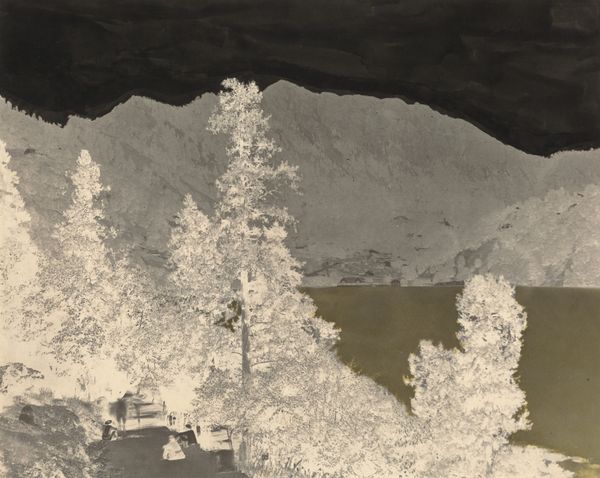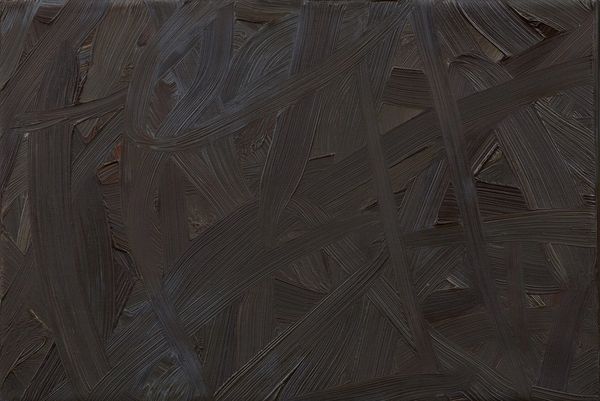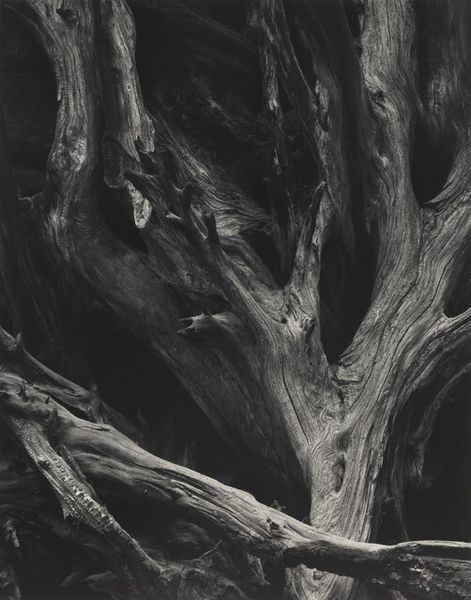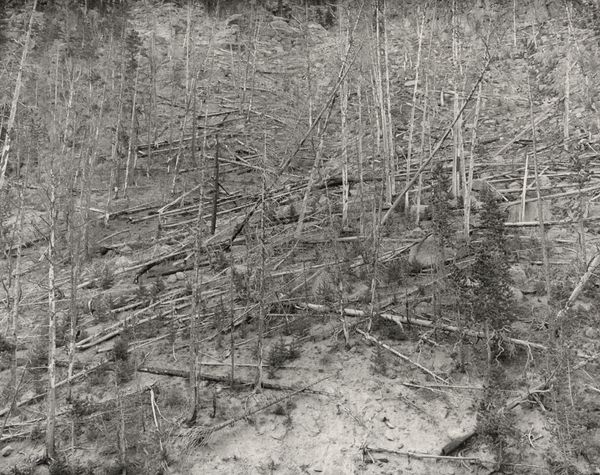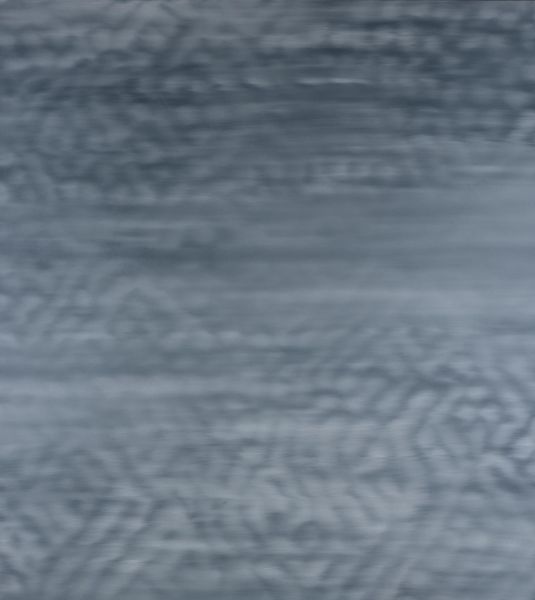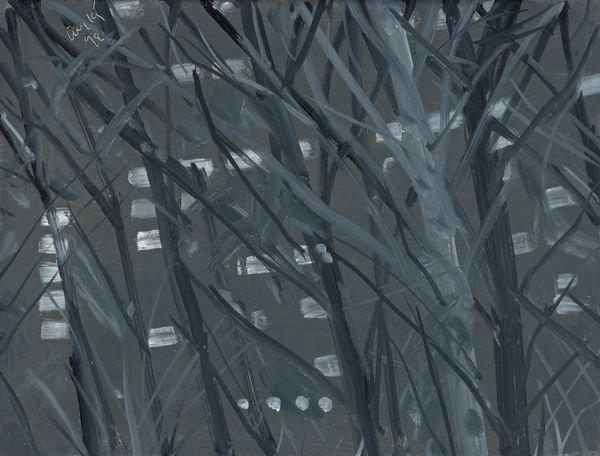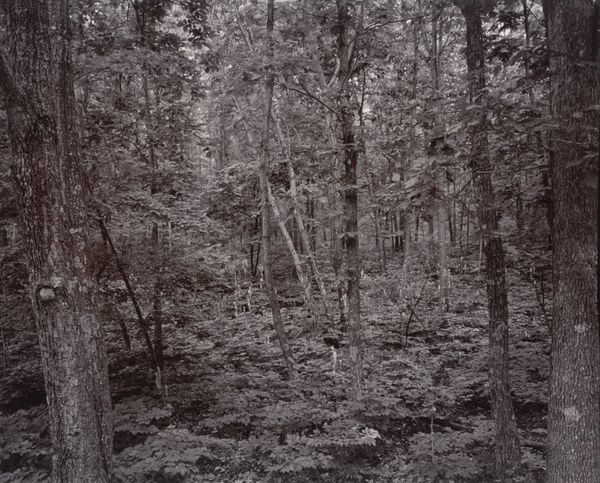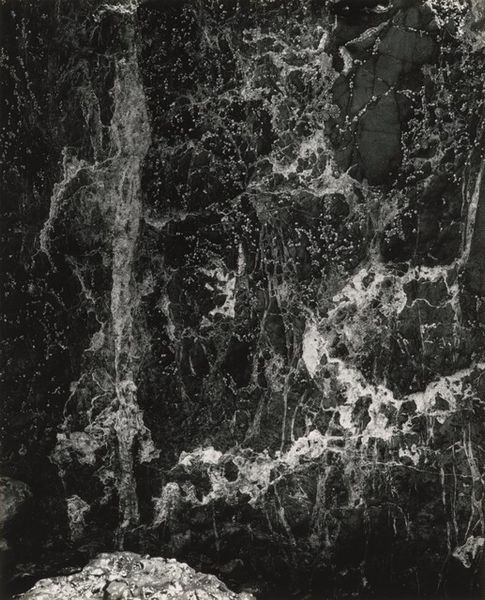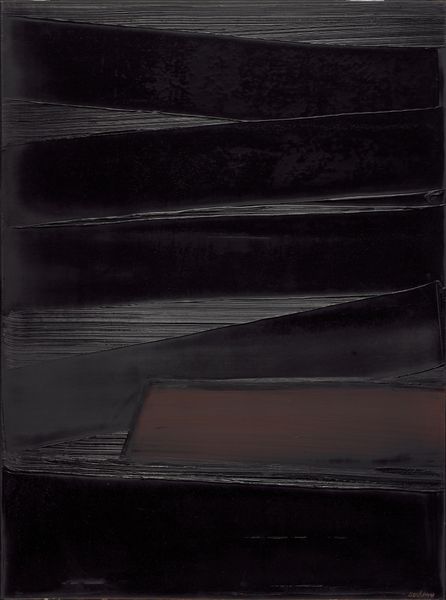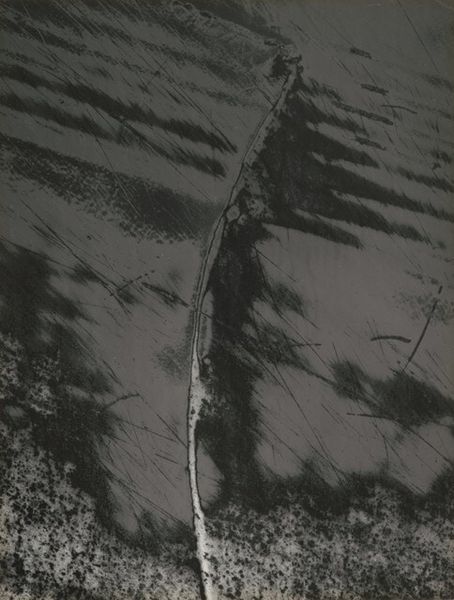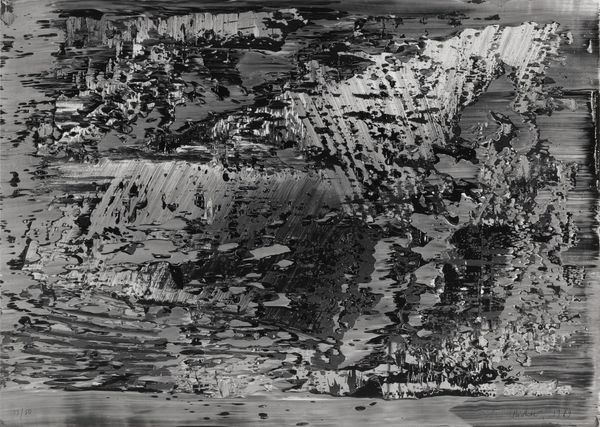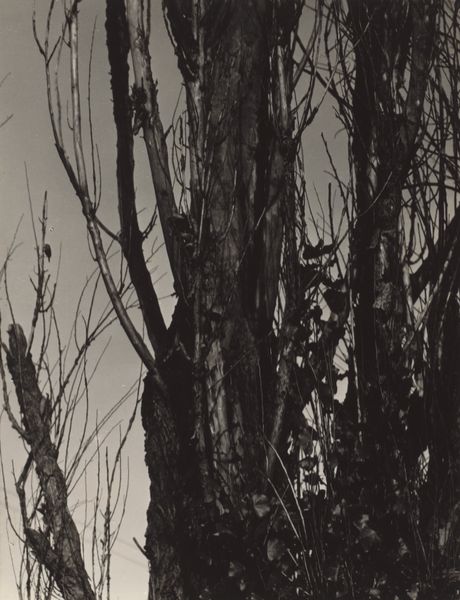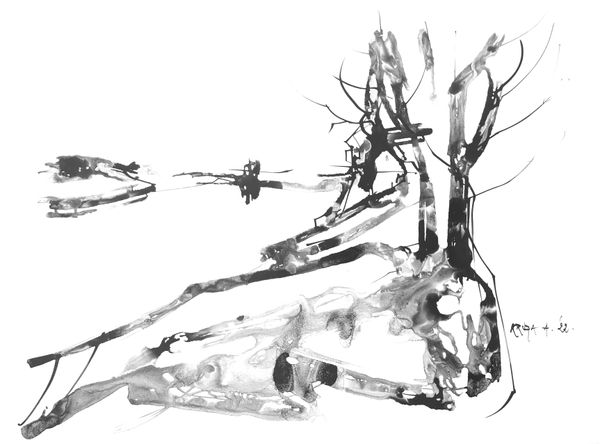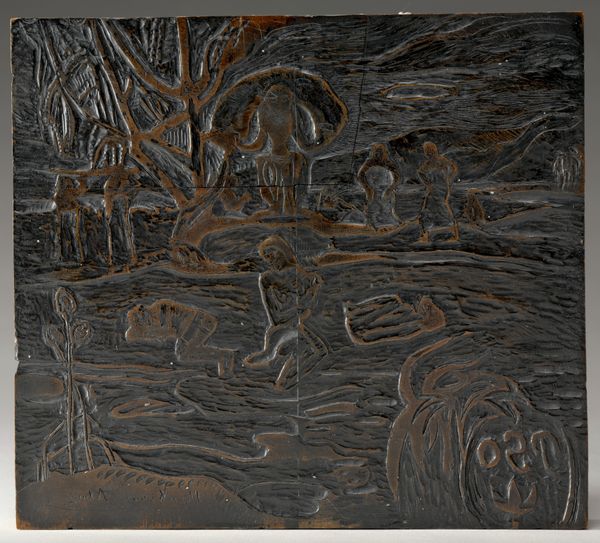
Dimensions: unconfirmed: 1930 x 1930 mm
Copyright: © Gillian Carnegie | CC-BY-NC-ND 4.0 DEED, Photo: Tate
Curator: Here we have Gillian Carnegie’s Black Square, currently held in the Tate Collections. The impasto is dense, almost aggressively applied across a square format of approximately 1930 by 1930 millimeters. Editor: Wow, it’s like peering into a charcoal drawing made of tar. Dark, imposing, but…strangely alive, like it’s breathing or something. Curator: The monochromatic palette amplifies the textural nuances. Note how Carnegie uses varying brushstrokes to suggest form and spatial depth, despite the limited tonal range. There’s a tension between representation and abstraction. Editor: Is it a landscape? The brushwork makes me think of maybe tree trunks, but cloaked in shadow? It’s like the memory of a forest, hauntingly present. Curator: Precisely. The subdued aesthetic invites introspection on the nature of perception, the materiality of paint, and the constructedness of the image itself. Editor: Well, now I see the woods for the trees. Or rather, the lack of them! It's more than just a pretty picture—it's a meditation on what we see, and how we see it. Curator: A fitting summation. The piece offers a profound, albeit visually austere, experience.
Comments
Join the conversation
Join millions of artists and users on Artera today and experience the ultimate creative platform.
tate 8 months ago
⋮
Black Square is a monochrome black painting depicting the trunks and branches of a clump of trees in textured paint. The image derives from a photograph taken by Carnegie at Hampstead Heath in North London. The painting surface is intensely tactile, combining matt and glossy paint, while the heavy black impasto makes it hard to decipher the brush’s linear markings on the surface, relying on external lighting and the viewer’s own movement to fully reveal the image.
